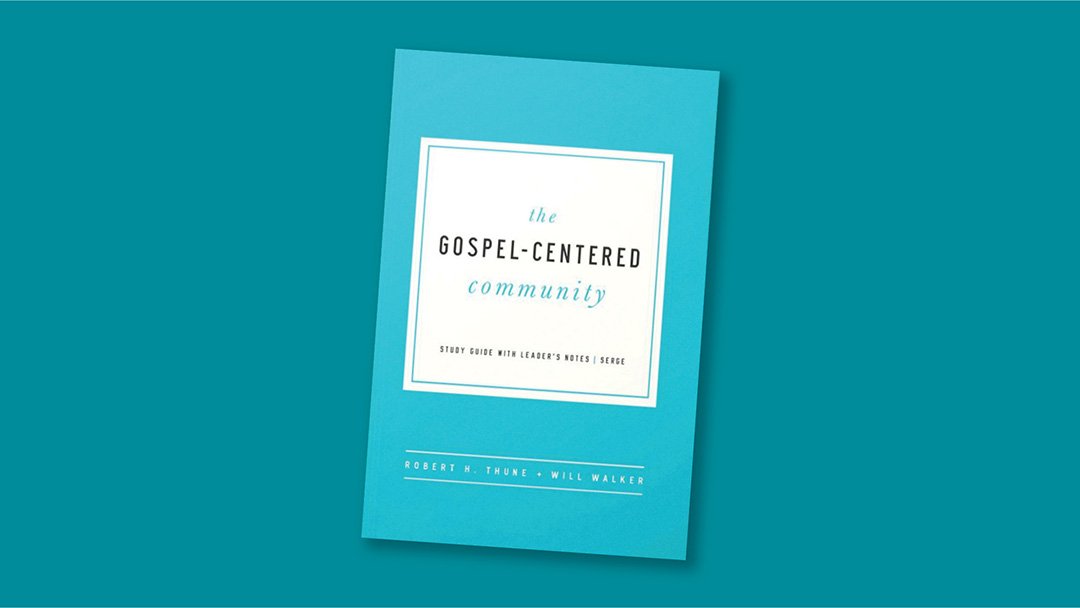Small group Bible studies are a powerful way to grow in faith, build lasting relationships, and engage in meaningful discussions about Scripture. In a world where people crave community and deeper understanding, small group settings provide a more intimate environment for exploring the Bible. Whether you’re a seasoned leader or just starting out, choosing the right Bible study for your group can make all the difference in fostering spiritual growth.
This comprehensive guide to Bible studies for small groups will equip you with the tools and knowledge to create an impactful experience for your members. From understanding the benefits of small group studies to finding the perfect study material, this guide covers every aspect to help your group flourish. Whether you’re looking for short studies to fit into a busy schedule or more in-depth sessions to dive deeper into God’s Word, we’ve got you covered.
5 Benefits of Small Group Bible Studies
Small group Bible studies offer unique advantages that larger gatherings often can't provide. By fostering deeper connections and more personalized learning experiences, these groups help believers grow both individually and collectively. Here are the key benefits of participating in small group Bible studies.
1. Building Stronger Relationships
One of the greatest benefits of small group Bible studies is the ability to create close-knit communities within the larger church setting. In smaller groups, people have the opportunity to build meaningful, lasting relationships rooted in faith. These relationships are often more genuine and supportive because members share their lives in a more personal way. The group becomes a family, united by their desire to grow closer to God and to one another. As trust develops, individuals are more likely to share their challenges, triumphs, and experiences, allowing for deeper spiritual connections.
2. Encouraging Accountability and Spiritual Growth
Small groups are excellent environments for fostering accountability. In a large congregation, it's easy to become anonymous, but within a small group, members are encouraged to hold one another accountable to biblical teachings and personal commitments. Whether it’s committing to regular Bible reading, prayer, or practicing Christlike virtues, small groups provide the support and encouragement needed to stay on track. Members can openly discuss their struggles and receive both guidance and prayer, which are essential for sustained spiritual growth. This accountability nurtures both individual growth and collective transformation.
3. Engaging More Interactive and Personalized Discussions
One of the biggest challenges in larger Bible studies is the lack of opportunity for personalized discussions. In contrast, small group Bible studies create a safe space where everyone’s voice can be heard. The intimate setting allows for more interactive discussions, where members can ask questions, share insights, and reflect on how Scripture applies to their daily lives. This dynamic creates an atmosphere of learning that feels personal, allowing each participant to explore their faith in a meaningful and engaging way. Members can also tailor the discussions to focus on topics or issues particularly relevant to their group, making the study more impactful.
4. Fostering Supportive Prayer and Fellowship
Small groups provide an ideal environment for supportive prayer and fellowship. In these settings, members not only study the Bible together but also pray for one another’s needs, joys, and challenges. This creates a spiritual bond, as group members become more invested in one another's lives. The smaller group size makes it easier to share personal prayer requests and to experience the joy of seeing those prayers answered. Beyond prayer, fellowship extends to encouraging one another during difficult times and celebrating victories, building a culture of care and compassion.
5. Multiplying Disciples and Leadership
Bible studies play a crucial role in multiplying disciples and nurturing future leaders. These groups provide a natural environment for developing leadership skills, as members take turns leading discussions, facilitating prayers, or organizing activities. As individuals grow in their faith, they are often inspired to step into leadership roles, whether within the group or in other areas of ministry. Over time, this multiplication process can result in new small groups being formed, expanding the reach of discipleship and fostering a culture of growth within the church. Small group Bible study lessons often serve as the foundation for this leadership development, as members learn how to disciple others in their walk with Christ.
How to Choose the Right Bible Study for Your Group
Selecting the right Bible study for your small group can significantly impact its effectiveness and the spiritual growth of its members. With the right study, you can address the unique needs of your group, foster meaningful discussions, and ensure that everyone is growing in their faith.
Consider the Group’s Spiritual Maturity
The first factor to consider when choosing a Bible study is the spiritual maturity of your group. Are your members new believers, seasoned Christians, or a mix of both?
New Believers
For groups with new believers, it’s important to choose studies that cover foundational Christian teachings and biblical concepts. Studies focusing on basic theology, the life of Jesus, or practical Christian living (e.g., prayer, faith, and forgiveness) are ideal for this group.
Seasoned Christians
More mature believers may benefit from deeper, more challenging studies that explore complex biblical themes or in-depth book studies (e.g., Romans, Hebrews, or Revelation). Studies that delve into theology, discipleship, or spiritual gifts may also resonate with seasoned Christians.
Mixed Groups
If your group has members at different stages of their spiritual journey, consider a study that offers both foundational and deeper insights. Look for Bible studies that provide discussion questions at different levels of depth, ensuring everyone is engaged regardless of their background.
Group Size and Time Commitment
Next, evaluate the size of your group and the amount of time members can commit to the study.
Group Size
Larger groups may benefit from studies that allow for more structured discussions, with clear outlines and activities that can engage everyone. Smaller groups may enjoy more free-form discussions that allow for deeper, more personal sharing.
Time Commitment
Some Bible studies are designed to be completed in a single session, while others can span several weeks or even months. Consider how much time your group can commit, whether you meet weekly, biweekly, or monthly. Shorter Bible studies for small groups (e.g., 4-week studies) may be more manageable for groups with busy schedules, while long-term studies may be better for groups that meet regularly and have more time to dive into in-depth topics.
Tailoring Bible Studies to Specific Interests
It’s important to choose a Bible study that speaks to the specific interests or needs of your group. Different groups may resonate with different topics depending on their demographics and the issues they face.

Women’s Groups
Studies focused on biblical womanhood, motherhood, or studies on women in the Bible may be particularly meaningful for women’s groups.

Men’s Groups
Men’s groups may benefit from studies on leadership, biblical masculinity, or topics like spiritual warfare and overcoming temptation.

Youth Groups
For younger groups, consider studies that address topics relevant to their stage of life, such as identity in Christ, peer pressure, or building a strong faith foundation.

Mixed Groups
Groups with both men and women or those from various walks of life can explore general topics like discipleship, the character of God, or practical Christian living.
Doctrinal Considerations
It’s crucial to ensure that the Bible study you choose aligns with the doctrinal beliefs and values of your group or church. Taking doctrinal considerations into account will help avoid confusion or division within the group and ensure that the study builds unity.
Denominational Beliefs
Some Bible studies may reflect specific denominational beliefs or interpretations of Scripture. Make sure that the study you choose doesn’t contradict the core teachings of your church or group.
Theological Depth
Depending on your group’s theological background, you may want to choose a study that provides rich theological insights without veering into overly complex or controversial topics. If your group holds strong views on certain doctrinal issues (e.g., baptism, salvation, eschatology), select a study that complements those beliefs.
Top Recommended Bible Study Topics

There are a wide variety of Bible study topics that appeal to different groups, and choosing a topic that resonates with your members is key to keeping their interest and engagement.
Selecting from these popular topics ensures that you’re offering a Bible study that’s relevant and meaningful to your group. A well-chosen Bible study for small groups will lead to stronger engagement, growth, and transformation in the lives of your members.
Short Bible Studies vs. In-Depth Bible Study Sessions
Choosing between short Bible studies and in-depth Bible study sessions depends on the needs, availability, and spiritual maturity of your group. Both formats offer unique advantages and can be powerful tools for spiritual growth when used appropriately.
Short Bible Studies
Short Bible studies are typically designed to be completed over a brief period, usually lasting anywhere from 1 to 4 weeks. These studies are ideal for groups that have time constraints or are just starting out.
In-Depth Bible Studies
In-depth Bible studies, on the other hand, typically last 6 weeks or more and offer a more immersive learning experience. These studies allow for deeper exploration of Scripture and often require a higher level of commitment from group members.
Advantages and Disadvantages of Both
Each format has its own strengths and weaknesses, depending on the group’s dynamics and goals.
Short Bible Studies
- Advantages: These studies are easier to fit into busy schedules and are less intimidating for new or casual members. They also allow groups to explore various topics quickly, offering variety and flexibility.
- Disadvantages: Short studies may not provide enough time to dive deeply into complex theological topics or foster long-term growth. The brevity may limit opportunities for deep reflection and personal application.
In-Depth Bible Study Sessions
- Advantages: Longer studies provide more time for thorough exploration of Scripture, leading to deeper understanding and greater spiritual growth. They also foster stronger group cohesion and accountability over time.
- Disadvantages: These studies require a greater time commitment and may not be feasible for groups with busy schedules. Additionally, newer or less mature members may feel overwhelmed by the intensity or depth of the material.
When to Choose Short vs. In-Depth Studies
The decision to choose short Bible studies or in-depth sessions should be based on your group’s dynamics, availability, and spiritual needs.
When to Choose Short Bible Studies:
- If your group is just starting out and members are still getting to know one another.
- When group members have busy schedules and need flexibility.
- If your group is looking to explore a variety of topics quickly.
- For groups made up of new believers or those who may not be ready for long-term commitments.
When to Choose In-Depth Bible Studies:
- If your group has been meeting for a while and is seeking to deepen their understanding of Scripture.
- When members are committed to a longer-term study and can dedicate more time to preparation and participation.
- If your group is composed of seasoned Christians looking to explore complex theological concepts.
- When the goal is to foster more extensive discussions and personal reflection.
Ultimately, the decision between short Bible studies for small groups and in-depth small group Bible study lessons comes down to the needs of your group. By understanding the advantages of both formats, you can select the study style that will best nurture spiritual growth and engagement in your group members.
Sample Bible Study Lessons
When leading small group Bible study lessons, it helps to have structured examples to guide your planning. Whether you're looking for a short study or an in-depth exploration, having a clear framework ensures that each session is meaningful, engaging, and spiritually enriching. Here are a few examples of Bible study for small groups, each tailored to different levels of depth and commitment.
Example #1: 4-Week Study on Prayer
This short Bible study is designed to introduce or deepen the group's understanding of prayer. Each week will focus on a specific aspect of prayer, combining Scripture, discussion questions, and activities to apply the teachings practically.
The Purpose of Prayer
Key Passage: Matthew 6:5-15 (The Lord’s Prayer)
Discussion Questions: What does Jesus teach about how we should approach prayer? How can we apply these principles to our daily lives?
Activity: Each member writes a personal prayer, following the structure of the Lord’s Prayer.
Praying in Faith
Key Passage: James 5:13-18
Discussion Questions: What does it mean to pray in faith? How can we cultivate greater faith in our prayer life?
Activity: Pair up and pray for one another’s needs, focusing on trusting God for answers.
Praying for Others
Key Passage: 1 Timothy 2:1-4
Discussion Questions: Why is intercession important? How can we develop a habit of praying for others?
Activity: Create a prayer list for family, friends, and global issues, and commit to praying over it throughout the week.
Listening in Prayer
Key Passage: 1 Kings 19:11-13
Discussion Questions: How can we hear God’s voice in prayer? What are some ways to be still and listen for His guidance?
Activity: Spend 10 minutes in silent prayer, listening for God’s direction. Share insights afterward.
Example #2: In-Depth Study on the Book of James
For groups looking for an immersive experience, an in-depth study of the Book of James is ideal. This study can be spread over 6 to 8 weeks, focusing on the practical teachings of James and encouraging members to apply them in their daily lives.
Overview of Study
The Book of James covers key themes like faith in action, controlling the tongue, wisdom, and perseverance through trials. Each session will focus on a chapter of James, with time for group reflection and discussion.
Faith and Trials
Key Passage: James 1:1-18
Key Themes: Joy in trials, asking God for wisdom.
Reflection Point: How can we view trials as opportunities for spiritual growth?
Listening and Doing
Key Passage: James 1:19-27
Key Themes: The power of words, living out our faith.
Reflection Point: In what areas of our lives do we need to align our actions with our faith?
Faith and Works
Key Passage: James 2:14-26
Key Themes: Faith is demonstrated via good works.
Reflection Point: What practical steps can we take to live out our faith daily?
Controlling the Tongue
Key Passage: James 3:1-12
Key Themes: The power of speech, taming the tongue.
Reflection Point: How can we use our words to encourage and build others up?
Wisdom from Above
Key Passage: James 3:13-18
Key Themes: True wisdom is pure, peace-loving, and considerate.
Reflection Point: How can we seek and apply godly wisdom in our decision-making?
Patience and Prayer
Key Passage: James 5:7-20
Key Themes: Endurance, the power of prayer, restoring others.
Reflection Point: How can we cultivate patience in our spiritual journey and support others in prayer?
Example #3: Study on the Fruit of the Spirit
This 6-week topical Bible study explores the Fruit of the Spirit (Galatians 5:22-23). Each week focuses on one or two fruits, with guided discussions and challenges to apply these qualities in daily life.
Love and Joy
Key Passage: Galatians 5:22-23
Discussion Prompts: How can we show love in difficult situations? What does true joy look like in a believer’s life?
Take-Home Challenge: Write down one way to practice love and one way to cultivate joy this week.
Peace and Patience
Key Passage: Philippians 4:6-7
Discussion Prompts: How can we experience peace amid stress? What does patience look like in a fast-paced world?
Take-Home Challenge: Commit to a daily time of quiet prayer and reflection to foster peace.
Kindness and Goodness
Key Passage: Colossians 3:12-14
Discussion Prompts: What acts of kindness can we show others? How can we model God’s goodness?
Take-Home Challenge: Perform a random act of kindness for someone this week.
Faithfulness
Key Passage: Hebrews 11:1-3
Discussion Prompts: How can we demonstrate faithfulness to God and others?
Take-Home Challenge: Reflect on an area where you need to be more faithful, and take action.
Gentleness and Self-Control
Key Passage: Proverbs 15:1
Discussion Prompts: How can we cultivate gentleness in our responses? Why is self-control crucial for spiritual growth?
Take-Home Challenge: Identify triggers for losing self-control and develop strategies to manage them.
Living by the Spirit
Key Passage: Galatians 5:16-25
Discussion Prompts: How can we continue walking in the Spirit daily? How do Holy Spirit's gifts work together with His fruits?
Take-Home Challenge: Write a prayer asking the Holy Spirit to guide you in bearing fruit in all areas of life.
Customizing Lessons for Your Group’s Needs
Every small group is unique, and it’s important to adapt Bible study lessons to suit your group’s specific needs. Here are a few tips to customize any study:
Customizing small group Bible study lessons ensures that they are relevant and impactful, addressing the specific spiritual needs of your group members while providing opportunities for deeper growth and fellowship.
Resources and Tools for Leading Bible Studies
Effective small group leadership requires both spiritual insight and practical tools to ensure that each session is engaging, organized, and beneficial to every participant. In this section, we’ll explore valuable resources for leading Bible studies, from Bible study guides and curriculums to digital tools that streamline the experience. Whether you’re leading in person or remotely, these tools will help you facilitate Bible study for small groups.
Bible Study Guides and Curriculums
One of the first steps in preparing for a small group Bible study is selecting the right guide or curriculum. These resources offer structured lesson plans that are easy to follow and adaptable to different group dynamics.
Books and Study Guides
Online Courses
Many ministries offer comprehensive Bible study curriculums through online platforms. For instance, RightNow Media is an extensive digital library of Bible study videos, featuring teachings from respected pastors and Christian leaders.
Digital Tools and Apps
In today’s digital age, leveraging technology can make leading a small group easier and more accessible. Whether you’re facilitating a local group or connecting remotely, these tools can help:
How to Facilitate an Engaging Study
The success of any Bible study largely depends on how well it’s facilitated. Here are some tips to ensure an engaging and meaningful experience for all participants:
Ask Thought-Provoking Questions
Instead of asking yes/no or surface-level questions, aim to spark deeper conversation. Use questions like, “How do you see this Scripture applying to your life today?” or “What challenges do you face in living out this truth?”
Foster Open Group Discussion
Create an environment where everyone feels safe to express their thoughts. Encourage participation by inviting quieter members to share, while also being mindful to keep discussions on track.
Use Varied Teaching Methods
Incorporating different formats—such as group discussions, small breakouts, and individual reflection helps keep all members engaged in the study. Visual aids, videos, and real-life examples also help bring Scripture to life.
Keeping Track of Progress and Growth
Maintaining records of your group’s attendance and spiritual growth can be helpful for both leaders and members. It also allows you to assess how the group is developing over time.
Creating a Supportive Environment for Leaders
Leading a small group Bible study is a rewarding yet demanding responsibility. To avoid burnout and maintain enthusiasm, it’s crucial to create a support system for leaders.
Download Free Study Guide
Choosing the right Bible study for your small group is key to fostering spiritual growth, deeper relationships, and meaningful engagement. Whether you're opting for short studies to fit busy schedules or diving into in-depth sessions for a more immersive experience, selecting a study that aligns with your group’s needs is crucial for a fruitful journey together. By considering factors like spiritual maturity, group size, and doctrinal alignment, you can ensure that each study brings your group closer to God and to one another.
To help you get started, we’ve provided free downloadable resources that offer structured lessons and guides tailored for small groups. These resources are designed to give you the tools and confidence needed to lead impactful Bible studies.
Take the next step in building a thriving small group community! Download a free Bible study guide today and start your group on a journey of deeper faith and connection.
Frequently Asked Questions
As you embark on your journey to lead Bible studies for small groups, you may have questions about how to get started, maintain engagement, and choose the right materials. Below are some common questions and helpful answers to guide you in your small group Bible study journey.
The ideal size for a small group Bible study typically ranges from 6 to 12 participants. This size allows for intimate discussions, enabling members to share their thoughts and experiences more freely. Smaller groups foster a sense of community and ensure that everyone has the opportunity to participate in small group Bible study lessons. However, the size may vary depending on your group’s dynamics and the objectives of the study.
To find a suitable Bible study for your group, consider the following steps:
- Assess your group's needs: Determine the spiritual maturity and interests of your members to find studies that resonate with them.
- Research various topics: Look for materials that cover themes such as prayer, discipleship, or specific books of the Bible.
- Utilize trusted resources: Explore recommendations from church leaders, online platforms like RightNow Media, or popular Bible study curriculums to identify studies that fit your group’s context.
If you notice that group members aren’t participating, consider these strategies:
Create a welcoming environment: Encourage openness and assure members that all contributions are valued.
Ask open-ended questions: Pose thought-provoking questions to spark discussions and invite quieter members to share their insights.
Rotate leadership: Allow different members to lead sessions to encourage investment and ownership within the group.
Check in privately: Consider reaching out to disengaged members individually to understand any barriers they may be facing.
Absolutely! Leading Bible studies for small groups virtually is a great way to connect with members who may not be able to meet in person. Here’s how to do it effectively:
Choose the right platform: Use video conferencing tools like Zoom or Google Meet to facilitate discussions. Check out SheepFeast's community groups to host your group discussions and interactions. It helps foster engagement and relationship growth.
Set a consistent schedule: Establish a regular meeting time that works for everyone and stick to it to build commitment.
Engage participants: Use features like breakout rooms for smaller discussions, share your screen to present materials, and encourage group interaction through chat features.
Follow up: Send out discussion questions or materials in advance to prepare participants and encourage their engagement.



